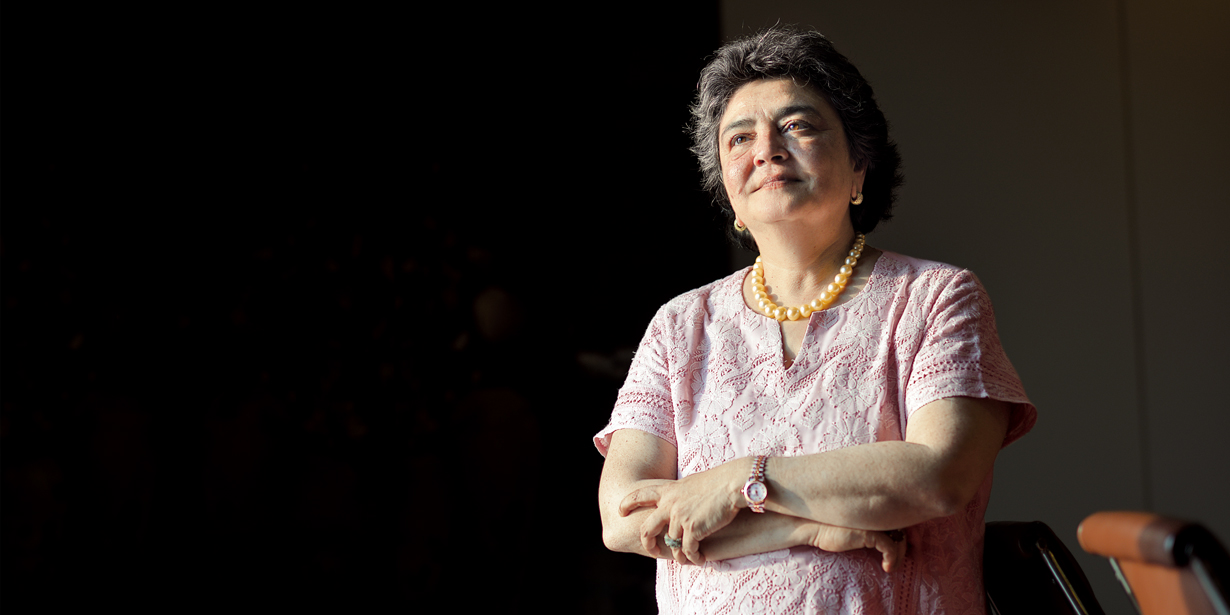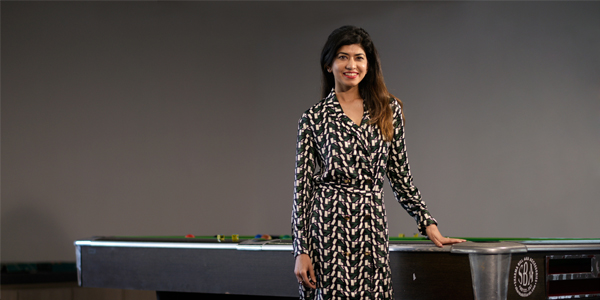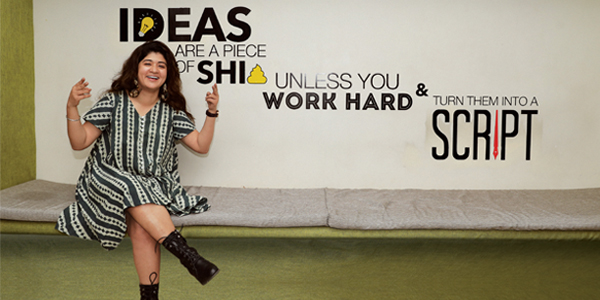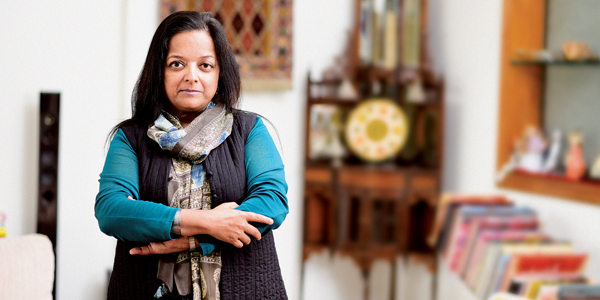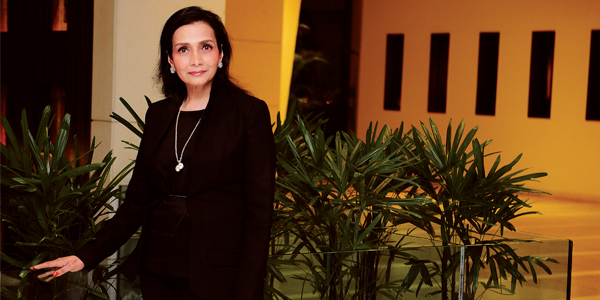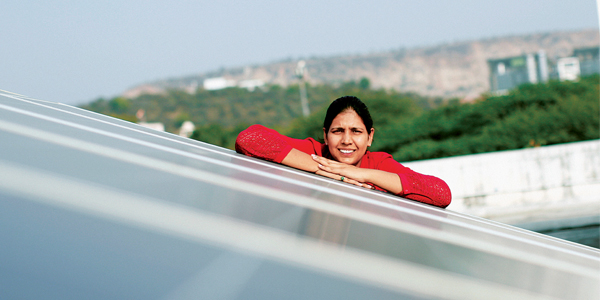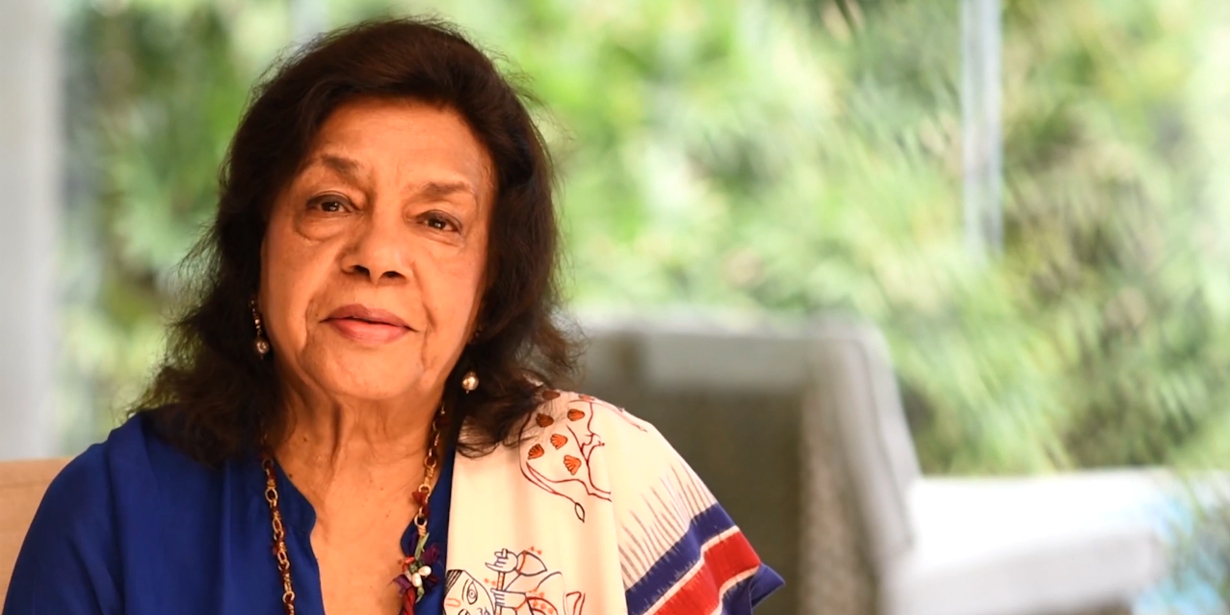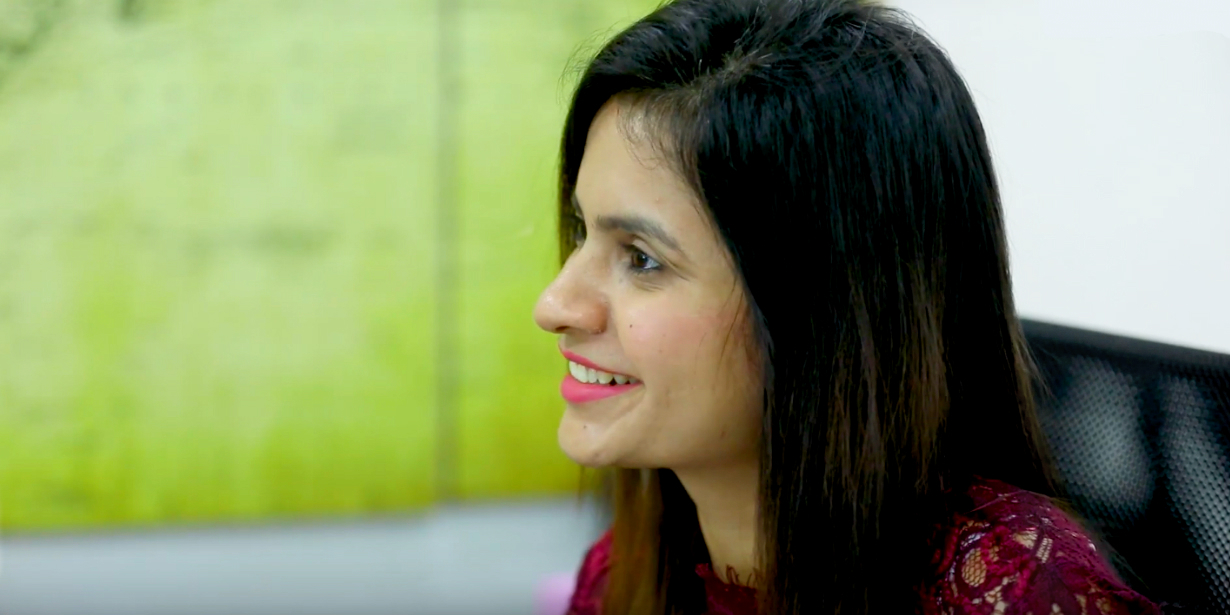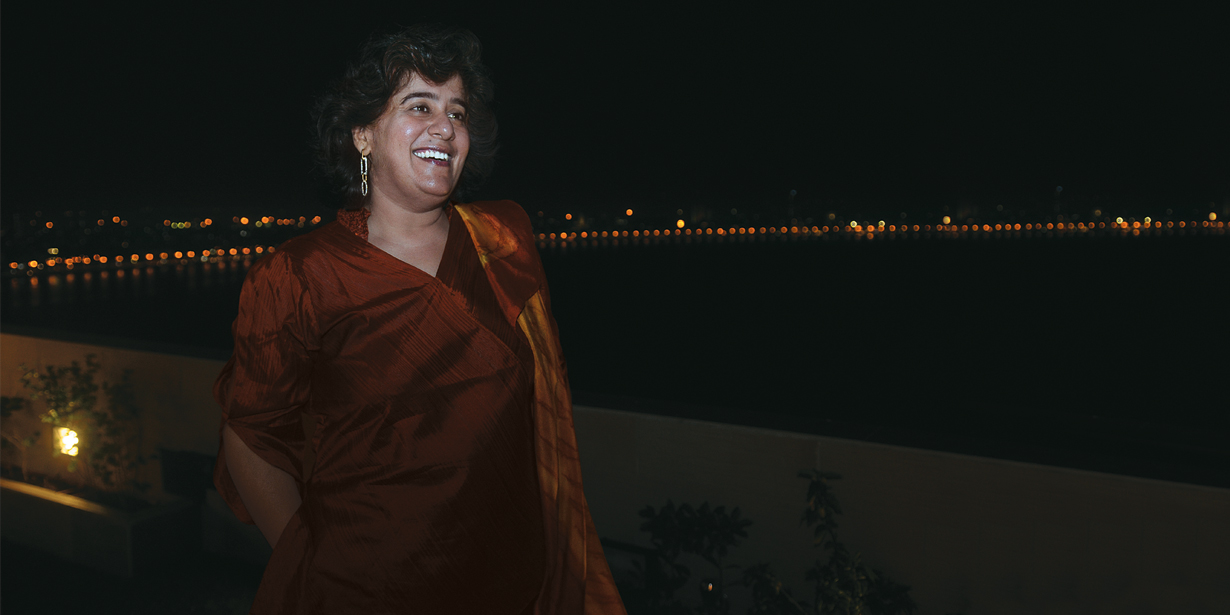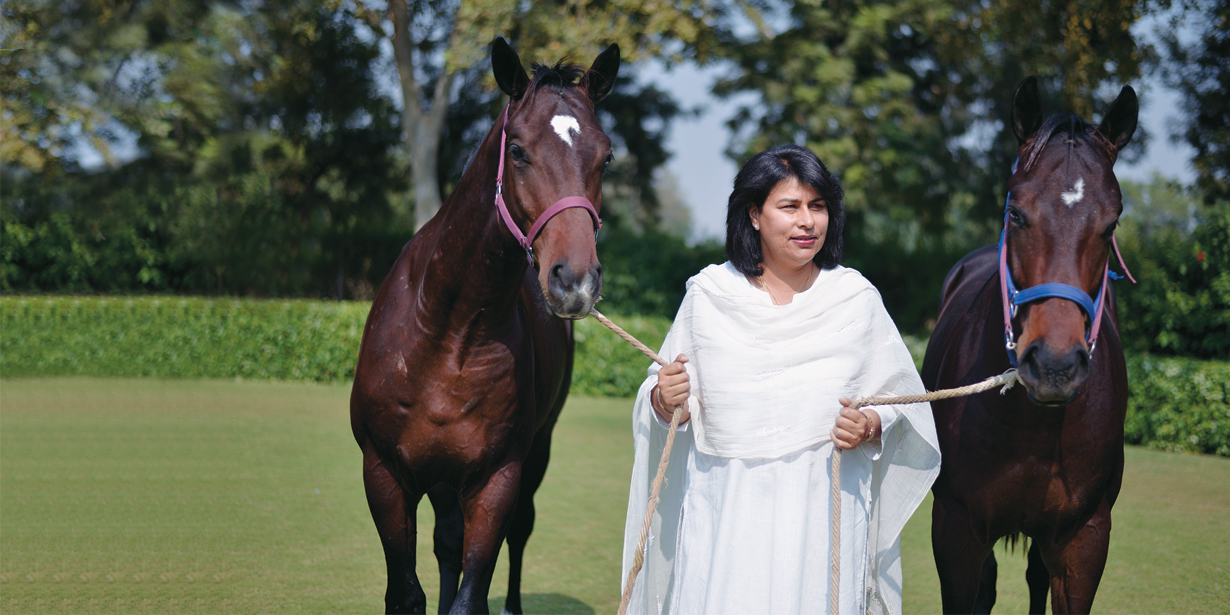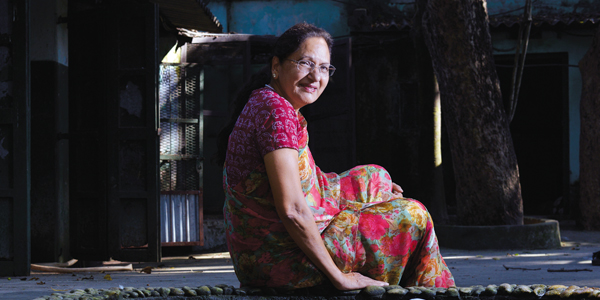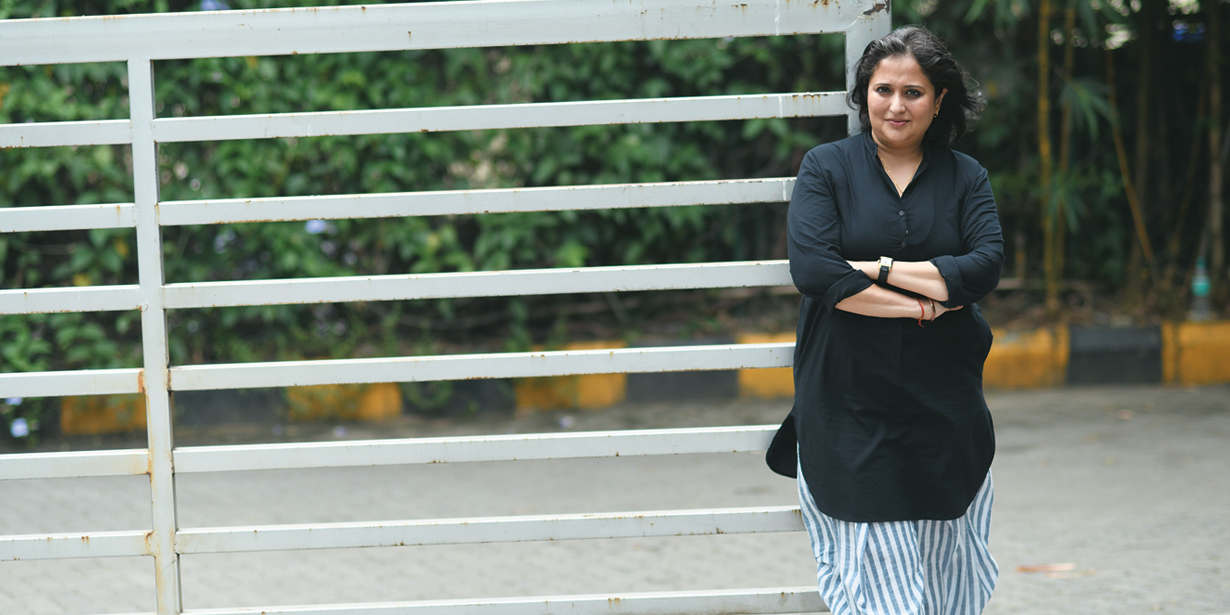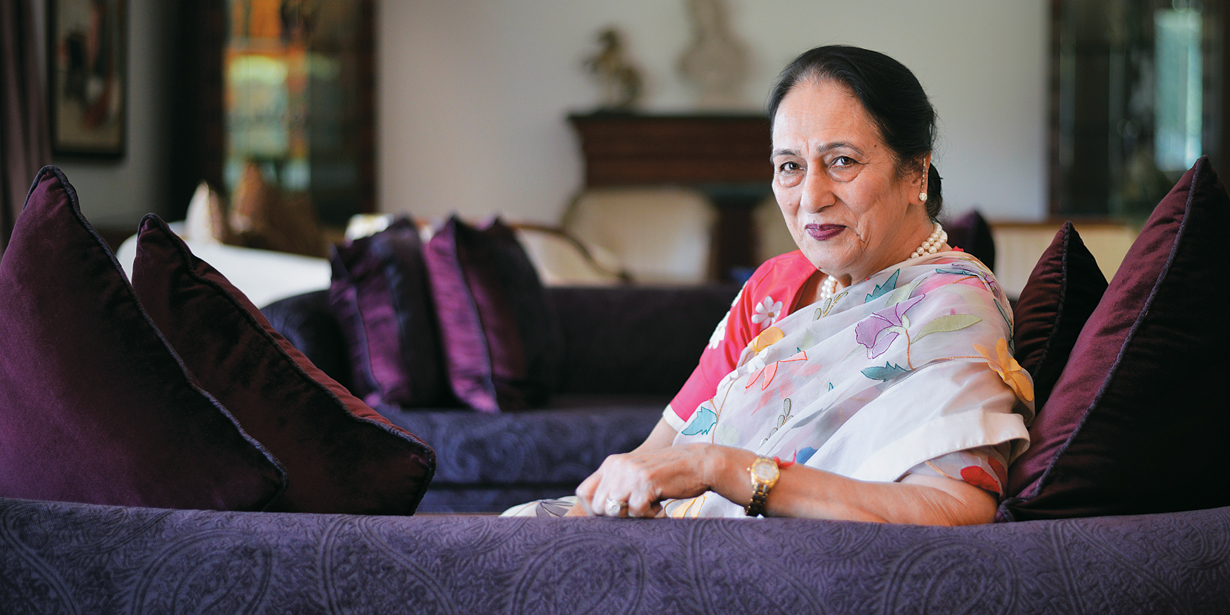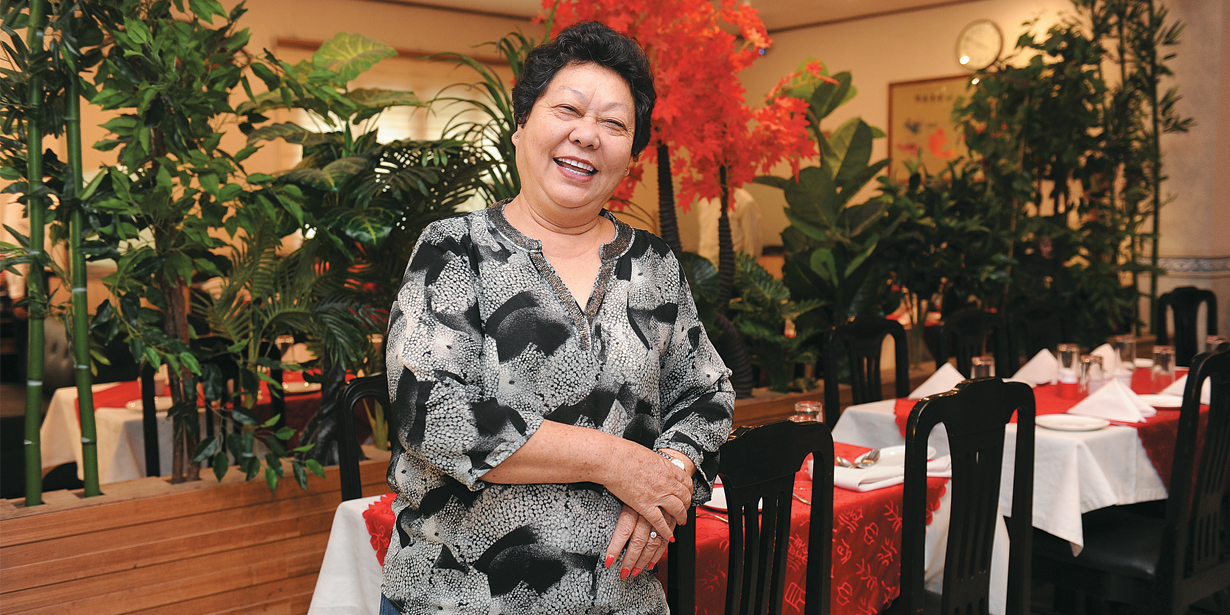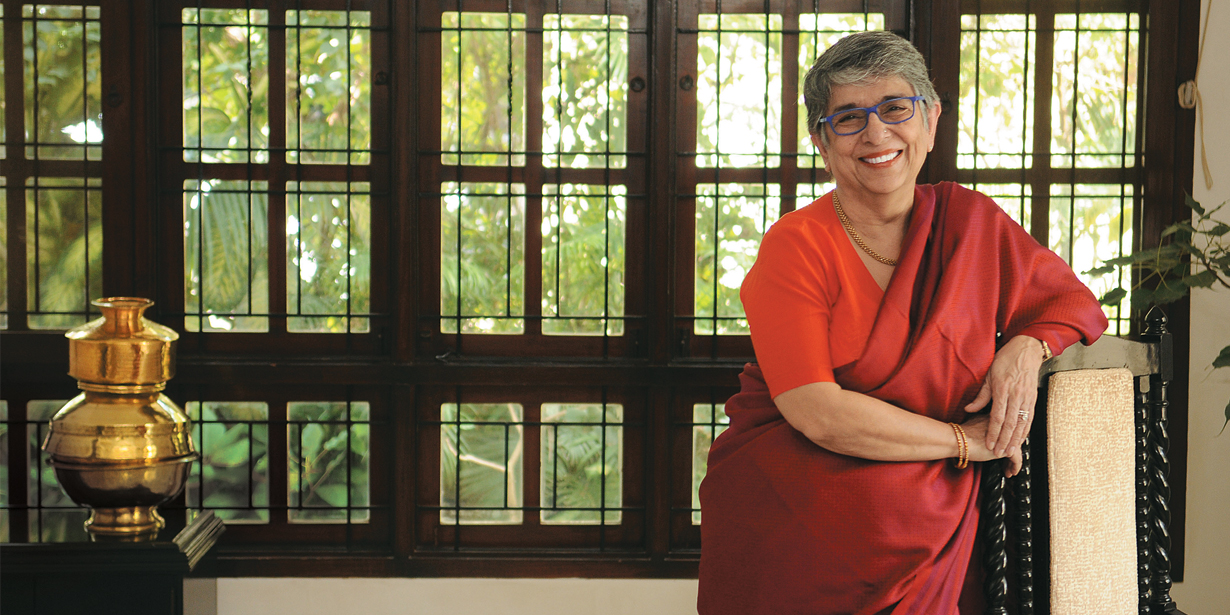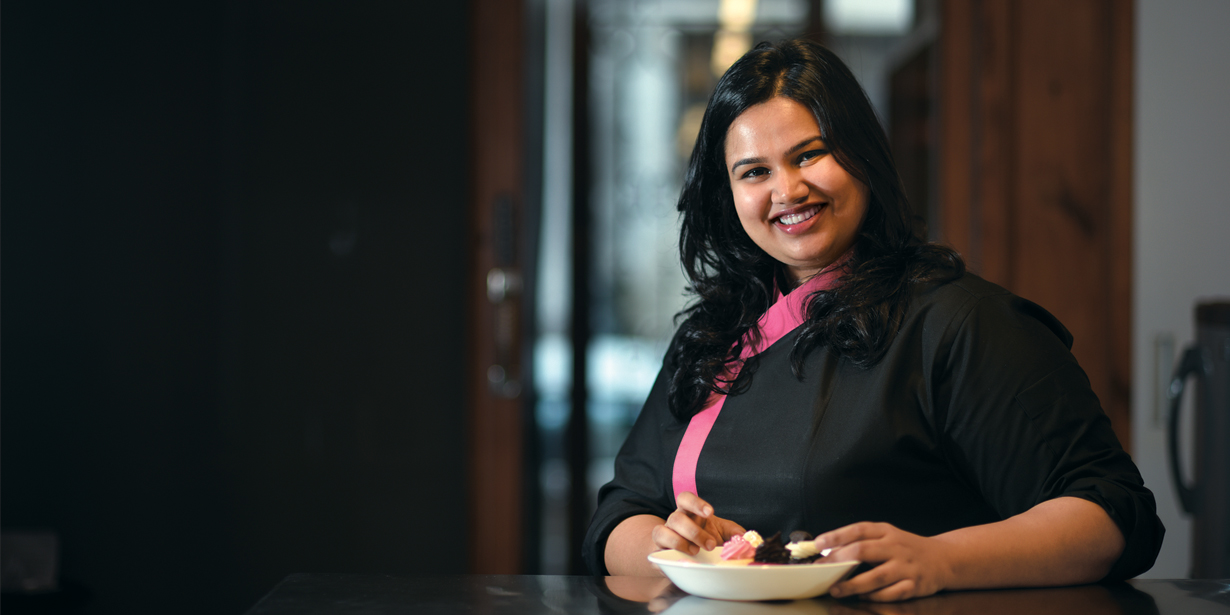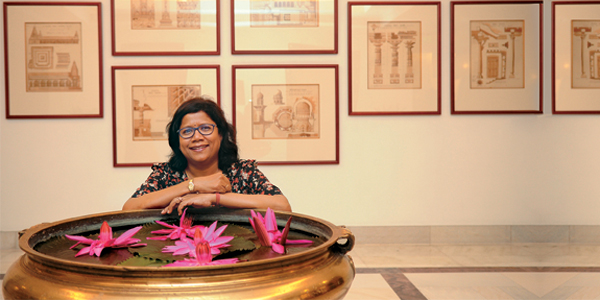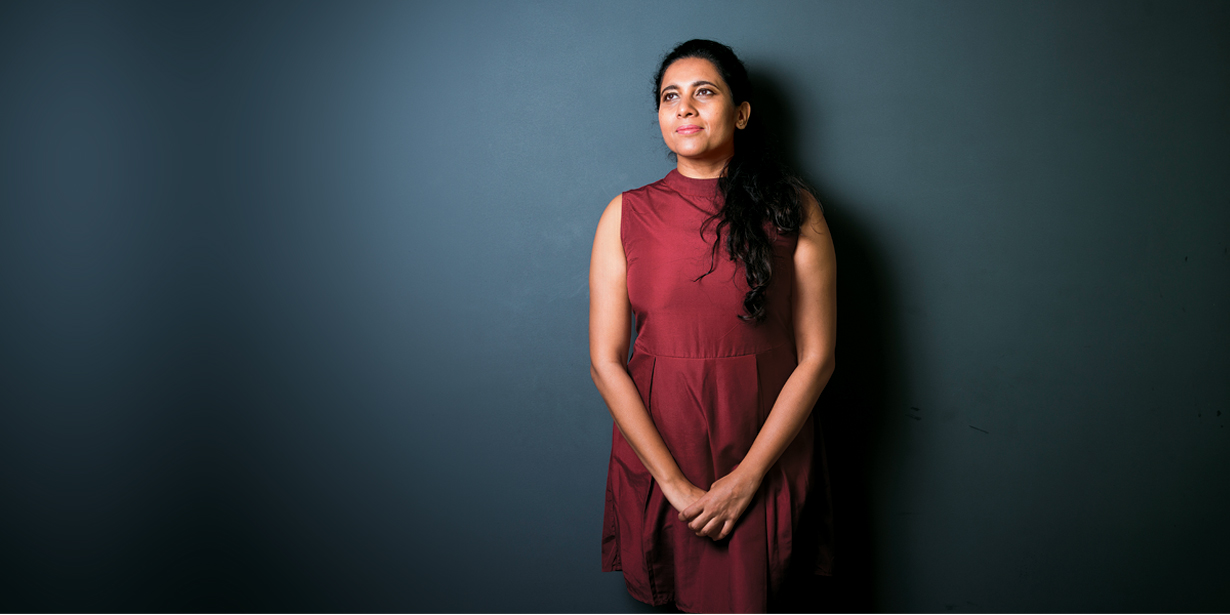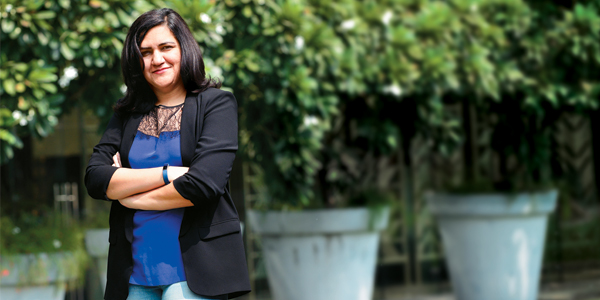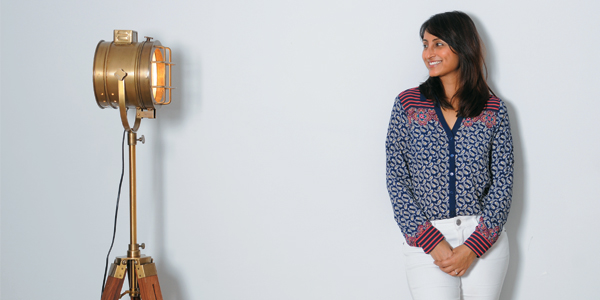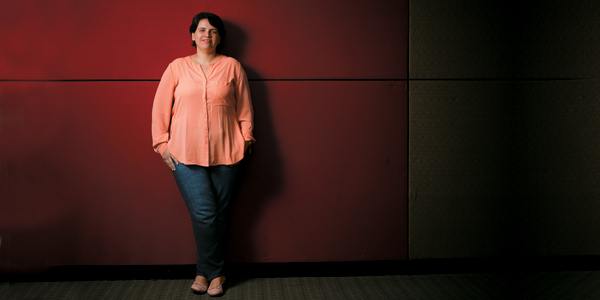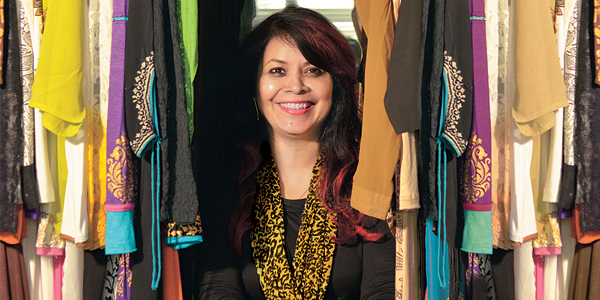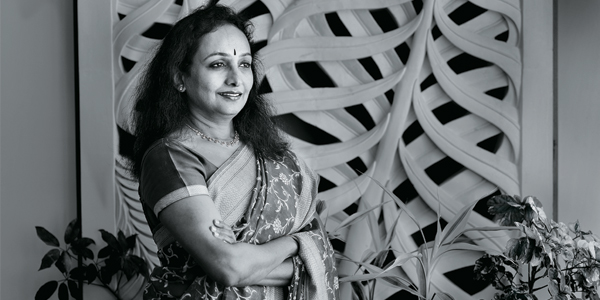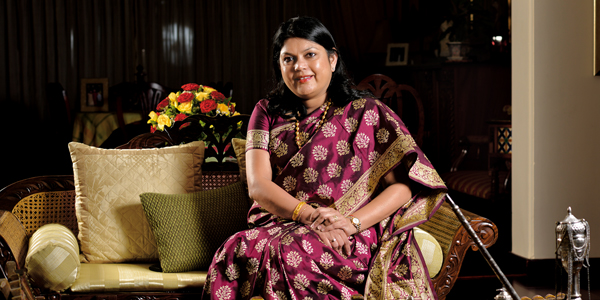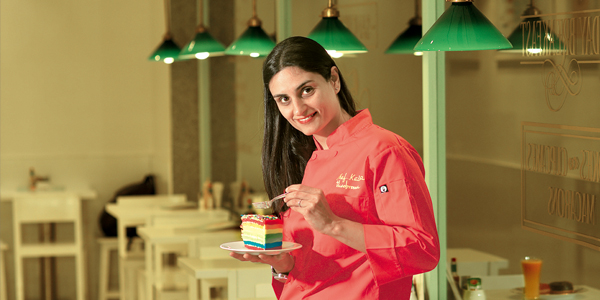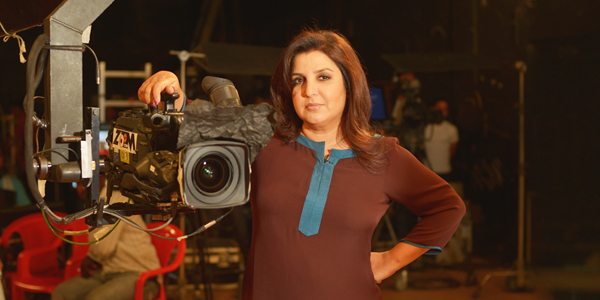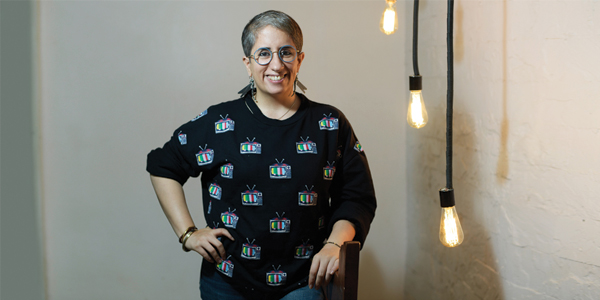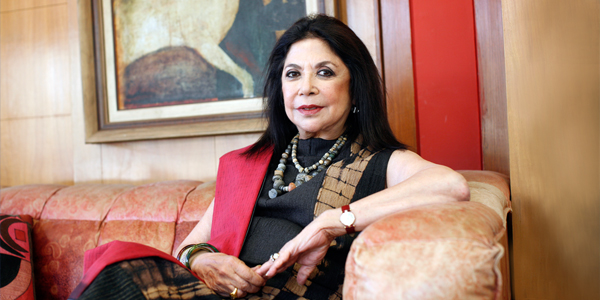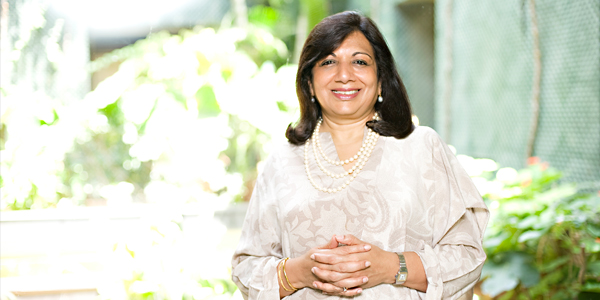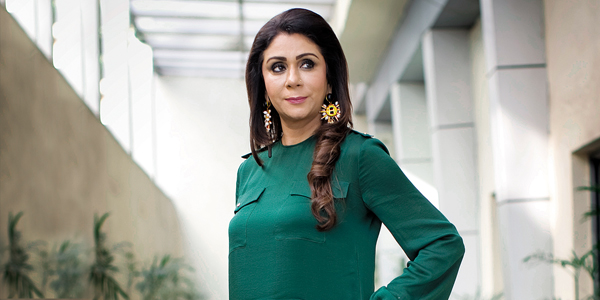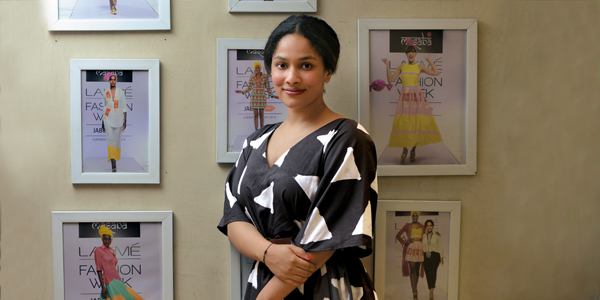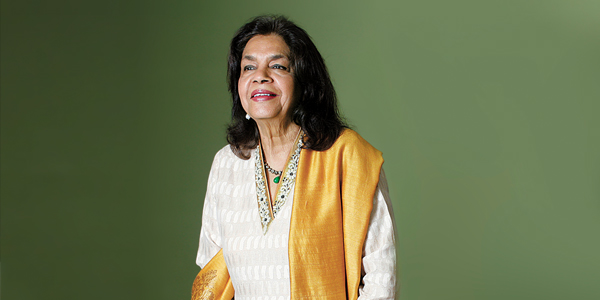Be it the Tatas or the Birlas, they can’t do without this powerhouse counsel
How Zia Mody became India’s indisputable M&A queen
It is five in the evening on a hot humid day in Mumbai. The fresh coat of polish on the long wooden table that runs along the length of this empty boardroom is quite distinct. I can catch glimpses of the glistening sea outside through the window blinds. The view from the 23rd floor of the Express Towers is refreshing and a mild distraction from the task at hand. There’s a gentle brush on the carpet as the heavy wooden door opens to reveal the powerhouse we’re waiting for. She announces her arrival with a high-pitched ‘Hello’ while she furiously types away on her BlackBerry. Once that last mail is attended to, she examines us briefly before disposing the phone inside her handbag and fishing out a rectangular case from which she extracts a string of beady pearls.
 As she clips on her standard piece of accessory, she continues in a business-like tone, “We have 30 minutes, ready?” Zia Mody, founder, AZB & Partners, India’s leading law firm, is renowned for her expertise in M&As, private equity and securities law. Her 33-year-long career is studded with successful deals she has clinched for India’s top corporates.
As she clips on her standard piece of accessory, she continues in a business-like tone, “We have 30 minutes, ready?” Zia Mody, founder, AZB & Partners, India’s leading law firm, is renowned for her expertise in M&As, private equity and securities law. Her 33-year-long career is studded with successful deals she has clinched for India’s top corporates.
In 2004, she assisted the Tata group in two crucial cross-border acquisitions including Tata Steel’s takeover of Singapore’s NatSteel and Tata Motors’ bid to buy South Korean firm Daewoo’s commercial vehicle division. In 2007, she advised the Aditya Birla Group on the acquisition of Atlanta-based Novelis by Hindalco Industries. She has also worked with Sunil Bharti Mittal and advised Bharti Airtel as it forged overseas around 2010 to purchase Kuwait-based Zain Telecom’s Africa business. Mody also counts several multinationals among her clients and assisted Citigroup when it sold its stake in i-Flex Solutions to Oracle in 2005.
Ask her the one accomplishment she’s proud of and a broad smile replaces the serious expression as she quips, “I am proud of being a woman in a man’s world, in the legal space.” Taking up law after her studies at Elphinstone College in Mumbai was a natural progression for the daughter of Soli Sorabjee, the former Attorney General of India.
Except for the six months during her teens when she dreamt of being an airhostess, Mody says, “There was never a doubt that I would do anything other than law.” Having a mother who encouraged her to follow her dreams and never feel restricted because of her gender, instilled the confidence that she needed to go abroad and pursue her higher education.
Mody completed her LLB from Selwyn College, University of Cambridge in 1978. She then followed it up with an LLM from Harvard Law School in 1980 and appeared for the New York State Bar Exam in 1981. Her first job was that of a corporate associate at Baker and McKenzie, a leading law firm in New York.
 While her academic credentials were outstanding, clients were skeptical handing over their case to a young woman barrister. “There was some apprehension from the clients’ perspective. At that point in time, when you’re the only woman in the room, you’re the odd one out. Nobody wants to go with the odd one,” she explains.
While her academic credentials were outstanding, clients were skeptical handing over their case to a young woman barrister. “There was some apprehension from the clients’ perspective. At that point in time, when you’re the only woman in the room, you’re the odd one out. Nobody wants to go with the odd one,” she explains.
This subtle skepticism pushed Mody to work harder than her male colleagues. “You must understand that the man scores his first three points out of ten by just walking into the room. As a woman, you have to catch up to those three points and then run harder for the next three to show that you are as credible and serious as the man,” she adds.
Mody was fortunate to have met Norman Miller, her senior at Baker & McKenzie who taught her the importance of logic, brevity and clarity in analysis. Being a commercial lawyer, her mentor always pushed her to think about the outcome. “What is it that we want to achieve?” is a question that he would always ask and a valuable lesson that Mody now imparts to the younger lawyers at her firm.
Learning the ropes
After a three-year-long stint in New York, Mody returned to India in late 1984. She married her childhood sweetheart Jaydev Mody, currently the chairman of Delta Corp. While her old firm offered a one-year sabbatical, Mody chose to practice litigation in Mumbai.
 With her band and black gown in tow, Mody stepped into the Bombay high court as a junior barrister. From having an office and secretary of her own in New York, she now had to operate out of a tiny office at Prospect Chambers in Mumbai. Here she met a learned lawyer by the name Obed Chinoy to whom Mody attributes her lessons in court craft, collegiality, how to be a good draftsman and the importance of being ruthlessly correct in arguments.
With her band and black gown in tow, Mody stepped into the Bombay high court as a junior barrister. From having an office and secretary of her own in New York, she now had to operate out of a tiny office at Prospect Chambers in Mumbai. Here she met a learned lawyer by the name Obed Chinoy to whom Mody attributes her lessons in court craft, collegiality, how to be a good draftsman and the importance of being ruthlessly correct in arguments.
Chinoy was the wise mentor who advised Mody to work for free for a while so that more people would avail of her service, which would ensure that she learnt more. So, Mody worked pro bono along with several other junior lawyers for an NGO called the Bombay Environmental Action Group. This organisation filed cases against illegal constructions and FSI violations. Mody recounts her early days of counsel practice, “Since these cases were against builders, the other side was always represented by a battalion of senior lawyers. It was a great learning ground. We learnt to fight, to make the most of it. That’s how you get your confidence built which is the most critical thing.” Mody continues to play an advisory role to several NGOs in her free time.
After gaining a considerable amount of experience in the courtroom, Mody decided to move from counsel practice to corporate law. In 1995, she set up Chambers of Zia Mody with a few lawyers that then morphed into AZB & Partners in 2004. “This move was an extension of what I was already doing as a barrister. I was the master of my own itinerary. My father didn’t like my decision, he didn’t think a desk job was elitist enough. I had to make an adjustment. As a barrister you simply bark out your commands and requisitions, now I was to be at the receiving end of those,” she laughs.
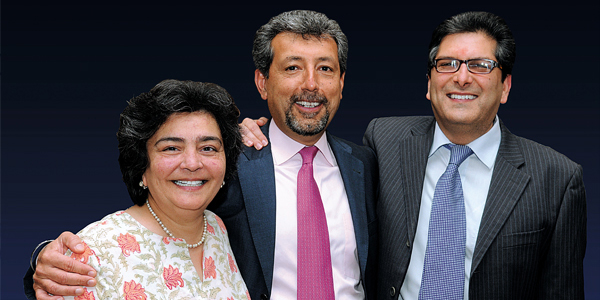
Like every other entrepreneur starting out, Mody was also looking for funding. Mody shares an amusing tale of her request for a loan. “I called up Deepak Parekh and confessed that I was nervous to say the amount since I thought it was a lot of money. When I told him I would need #30 lakh, I think there was a relieved smile on the other end of the line.” Why the hesitation to borrow money, I ask? “Parsis don’t take loans and if they do, they like to pay it back as soon as possible,” she says.
When asked about the challenges she faced, Mody thinks hard before answering, “We were a committed group of people with a tremendous amount of energy. The only challenge was that everyday a new law was coming up, we had to read up and provide advice the next day ensuring that nothing new had cropped up the day before.” The firm, which started with 12 partners in 2004, today employs over 200 lawyers.
Mody has many other laurels to her name. She currently sits on the board of UK-based Hongkong and Shanghai Banking Corporation. She has been the vice-chairman of the London Court of Arbitration and on the board of the World Bank Administrative Tribunal.
“I could not have been where I am without my husband’s support. You cannot be fighting every night and still have the passion to succeed,” Mody says as she highlights the importance of a supportive partner and mother-in-law. Mody who’s the proud mother of three daughters did not skip court during her pregnancy. “If the clients wanted me, I was a pregnant lawyer. I would go to court each day knowing that I had a great mother-in-law to support me at home,” she adds.
One cannot ignore the role Mody’s father played right from inspiring her to take up law, work hard and stay true to the spirit of the law. So has the corporate attorney ever fought against her father, a constitutional expert? “We have fought a few cases against each other. I lost all of them. He was in court one day and I assumed he was there for some other reason. When I rose to present my side, I found him on the other side. He knew that I was representing the opposite party. He was having a good time teasing me.”
Mody who’s known to be a workaholic believes in the concept of striking the right work-life balance but admits that she hasn’t achieved that so far. Mody has also learnt to play the piano at the Royal School of Music. A devout follower of the Bahaï faith, Mody spends her free time reading religious books. She and her husband make time for holidays together with Kenya and Goa being their favourite travel destinations.
It’s almost 5.45 pm when she calls for her lunch to be served in the boardroom. This interview is not her last commitment for the day, she is off to meet Darius Khambata — former advocate general of Maharashtra — in a bit. She adds that her day might not end till about two in the morning. The 59-year-old mergers and acquisitions expert draws inspiration from US Supreme Court justice Ruth Bader Ginsburg, the 82-year-old liberal jurist who has relentlessly fought against sexual discrimination in the American society.
As she munches on crisp theplas, Mody concludes by offering her pearls of advice to women professionals to succeed. “I can’t emphasise enough on the importance of hard work, never cut corners, stay true to your thought process and build a team. You can’t do much alone.”
